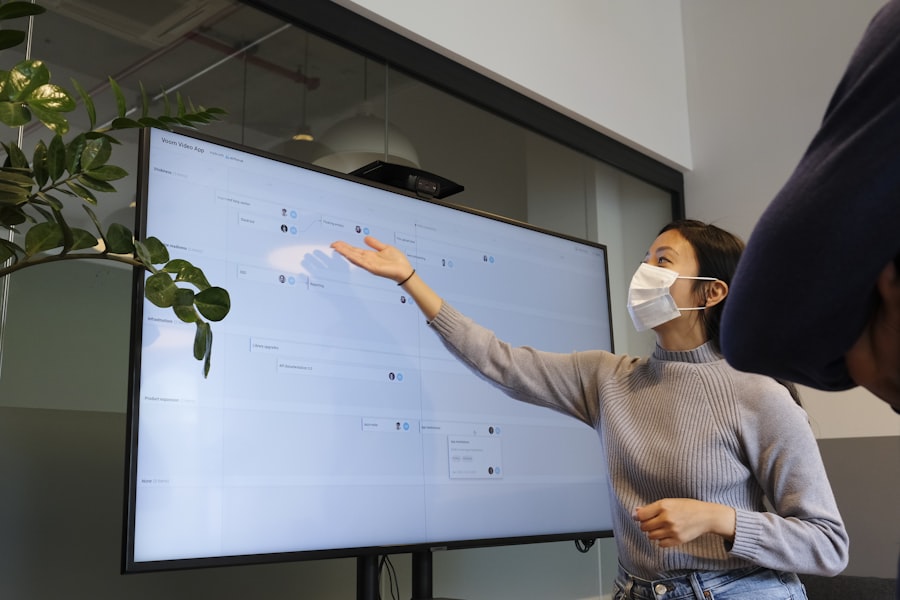Time management and organization are essential skills in professional environments. Effectively managing time and maintaining organization can significantly enhance productivity and workplace success. One effective strategy for improving time management is establishing clear daily goals and priorities, which helps maintain focus on crucial tasks.
Utilizing tools like calendars, to-do lists, and project management software can aid in staying organized and on schedule. Delegation is another critical aspect of time management. Recognizing when workload becomes excessive and seeking assistance can prevent burnout and ensure efficient task completion.
Learning to decline non-essential tasks helps in prioritizing workload and concentrating on important matters. Mastering time management and organization can lead to improved efficiency, reduced stress levels, and a better work-life balance. In any professional context, effective time management and organization are crucial for success.
Key practices include setting clear goals and priorities, utilizing organizational tools, and delegating tasks when appropriate. These skills contribute to increased productivity, stress reduction, and improved work-life balance.
Key Takeaways
- Prioritize tasks and set realistic deadlines to effectively manage time and stay organized.
- Foster open and clear communication with colleagues and collaborate effectively to achieve common goals.
- Stay updated with the latest technology trends and continuously improve proficiency in relevant tools and software.
- Cultivate self-motivation and discipline to stay focused and productive in achieving personal and professional goals.
- Embrace change and be flexible in adapting to new situations and challenges in the workplace.
- Practice stress management techniques and strive for a healthy work-life balance to avoid burnout.
- Commit to continuous learning and skill development to stay relevant and competitive in the ever-evolving work environment.
Communication and Collaboration
The Importance of Communication
Effective communication is a crucial skill in any workplace, as it is essential for building strong relationships with colleagues, clients, and stakeholders. It involves not only being able to express your ideas clearly but also being a good listener. Active listening is an important skill that can help you understand others’ perspectives and build rapport with your colleagues.
Professional Communication and Collaboration
Being able to communicate professionally through written communication, such as emails and reports, is crucial for conveying information effectively. Collaboration is another important aspect of working in a professional setting. Being able to work well with others, contribute to a team, and resolve conflicts are all essential skills for success in the workplace. Collaboration involves being open to others’ ideas, being a team player, and being able to compromise when necessary.
Mastering Communication and Collaboration Skills
By mastering communication and collaboration skills, you can build strong relationships with your colleagues, improve teamwork, and achieve better results in your work. Effective communication and collaboration are essential skills for success in any professional setting. It is important to be able to express ideas clearly, listen actively, and communicate professionally through written communication. Additionally, being able to work well with others, contribute to a team, and resolve conflicts are all essential skills for success in the workplace.
Technology Proficiency

In today’s digital age, technology proficiency is a crucial skill for success in the workplace. Being proficient in technology can help you work more efficiently, stay organized, and adapt to new tools and software. Proficiency in basic office software such as Microsoft Office or Google Suite is essential for most professional roles.
Additionally, being able to use project management software, communication tools, and industry-specific software can help you stay ahead in your field. Furthermore, being able to adapt to new technology is an important aspect of technology proficiency. As technology continues to evolve, it is important to stay up-to-date with new tools and software that can improve your work processes.
This may involve taking courses or training to learn new skills or staying informed about industry trends. By mastering technology proficiency, you can improve your efficiency, stay competitive in your field, and adapt to the changing demands of the workplace. Technology proficiency is a crucial skill for success in the workplace.
It is important to be proficient in basic office software as well as industry-specific tools and software. Additionally, being able to adapt to new technology is essential for staying competitive in your field and improving your work processes.
Self-Motivation and Discipline
Self-motivation and discipline are important skills for success in any professional setting. Being able to stay motivated and disciplined can help you stay focused on your goals and overcome challenges in the workplace. One way to improve self-motivation is by setting clear goals for yourself and staying committed to achieving them.
This can help you stay focused on your work and maintain a positive attitude even when faced with obstacles. Discipline is another important aspect of self-motivation. Being able to stay disciplined involves being able to manage your time effectively, avoid distractions, and stay committed to your work even when it becomes challenging.
Additionally, being able to hold yourself accountable for your actions and take responsibility for your work is crucial for success in the workplace. By mastering self-motivation and discipline, you can improve your productivity, achieve better results, and overcome challenges in your work. Self-motivation and discipline are important skills for success in any professional setting.
It is important to set clear goals for yourself, stay committed to achieving them, manage your time effectively, avoid distractions, and hold yourself accountable for your actions. These skills can help improve productivity, achieve better results, and overcome challenges in the workplace.
Adaptability and Flexibility
Adaptability and flexibility are important skills for success in the workplace, especially in today’s fast-paced and ever-changing work environment. Being adaptable involves being open to change, being able to learn new skills quickly, and being able to adjust to new situations as they arise. Flexibility involves being able to adjust your work schedule or priorities when necessary and being open to new ideas or ways of working.
One way to improve adaptability is by staying informed about industry trends and changes that may impact your work. This can help you anticipate changes and be prepared to adapt when necessary. Additionally, being open-minded and willing to learn new skills or ways of working can help you stay adaptable in the face of change.
By mastering adaptability and flexibility, you can stay ahead of industry changes, improve your problem-solving skills, and achieve better results in your work. Adaptability and flexibility are important skills for success in the workplace. It is important to be open to change, learn new skills quickly, adjust to new situations as they arise, adjust your work schedule or priorities when necessary, be open-minded, and willing to learn new skills or ways of working.
These skills can help you stay ahead of industry changes, improve problem-solving skills, and achieve better results in your work.
Stress Management and Work-Life Balance

Recognizing and Managing Stress
Stress management involves recognizing when you’re feeling stressed or overwhelmed and taking steps to address these feelings. This can be achieved by practicing mindfulness or relaxation techniques, seeking support from colleagues or supervisors, or taking breaks when necessary.
Achieving Work-Life Balance
Work-life balance is about prioritizing your personal life alongside your professional responsibilities. This can be achieved by setting boundaries around your work hours, making time for hobbies or activities outside of work, or taking regular vacations or time off.
The Benefits of Mastering Stress Management and Work-Life Balance
By mastering stress management and work-life balance, you can improve your overall well-being, prevent burnout, and achieve greater satisfaction in both your personal and professional life.
Continuous Learning and Skill Development
Continuous learning and skill development are important for staying competitive in the workplace and advancing in your career. Being able to learn new skills or stay informed about industry trends can help you stay ahead of changes in your field. This may involve taking courses or training programs, attending industry conferences or events, or seeking mentorship from more experienced colleagues.
Skill development involves not only learning new skills but also honing existing ones. This may involve seeking feedback from colleagues or supervisors, practicing new techniques or approaches in your work, or taking on new challenges that allow you to grow professionally. By mastering continuous learning and skill development, you can stay competitive in your field, advance in your career, and achieve greater success in the workplace.
Continuous learning and skill development are important for staying competitive in the workplace. It is important to learn new skills or stay informed about industry trends by taking courses or training programs, attending industry conferences or events, or seeking mentorship from more experienced colleagues. Additionally, honing existing skills by seeking feedback from colleagues or supervisors, practicing new techniques or approaches in your work, or taking on new challenges that allow you to grow professionally can help advance in your career and achieve greater success in the workplace.
In conclusion, mastering these seven essential skills can greatly impact one’s success in the workplace. Time management and organization skills can improve efficiency and reduce stress; communication and collaboration skills can build strong relationships with colleagues; technology proficiency can keep one competitive; self-motivation and discipline can lead to better results; adaptability and flexibility can improve problem-solving; stress management and work-life balance can maintain overall well-being; continuous learning and skill development can lead to career advancement. By focusing on developing these skills, individuals can enhance their professional performance while achieving a better work-life balance.
If you’re looking to enhance your remote work skills, you may also be interested in exploring careers in the non-profit sector. This article from Careers Help provides valuable insights into the opportunities available in this rewarding industry and how to navigate a career in non-profit organizations. Understanding the different career paths and skill sets required in the non-profit sector can complement your remote work skills and open up new possibilities for your professional development.
FAQs
What are remote work skills?
Remote work skills are the abilities and competencies that enable individuals to effectively work and collaborate in a remote or virtual work environment. These skills include communication, time management, self-motivation, and the ability to use remote work tools and technology.
Why are remote work skills important?
Remote work skills are important because they enable individuals to be productive, efficient, and successful in a remote work setting. These skills are essential for effective communication, collaboration, and task management when working with colleagues and clients who may be located in different geographic locations.
What are some examples of remote work skills?
Examples of remote work skills include strong communication skills, proficiency in remote work tools and technology, time management and organization, self-motivation and discipline, adaptability and flexibility, and the ability to collaborate and work effectively in a virtual team environment.
How can I enhance my remote work skills?
You can enhance your remote work skills by improving your communication abilities, becoming proficient in remote work tools and technology, practicing effective time management and organization, cultivating self-motivation and discipline, and seeking out opportunities to collaborate and work in virtual team settings.
What are some resources for developing remote work skills?
There are many resources available for developing remote work skills, including online courses and training programs, webinars and workshops, books and articles on remote work best practices, and networking with other remote workers to learn from their experiences and insights. Additionally, many companies offer internal resources and training for remote work skills.



